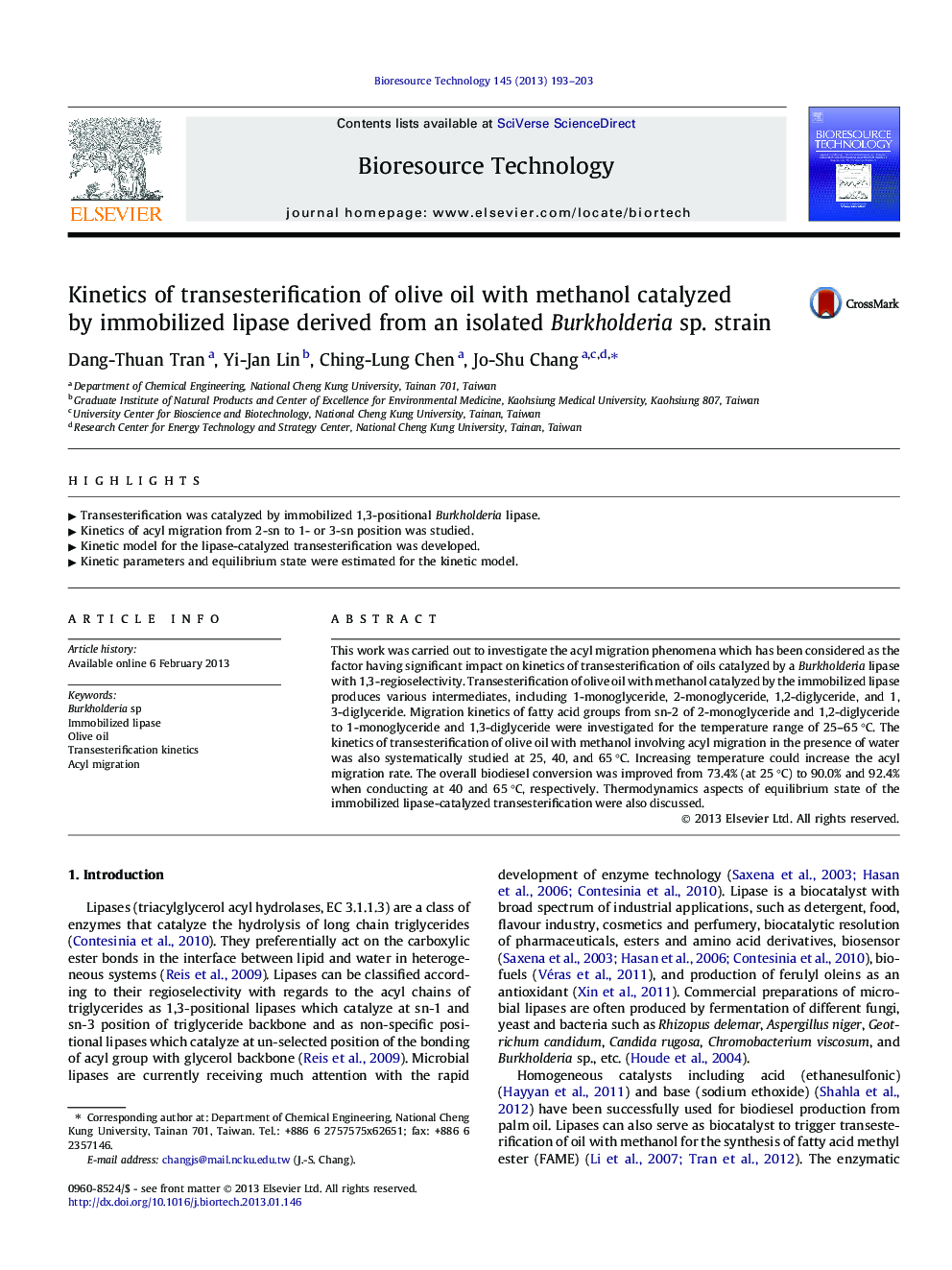| Article ID | Journal | Published Year | Pages | File Type |
|---|---|---|---|---|
| 681047 | Bioresource Technology | 2013 | 11 Pages |
This work was carried out to investigate the acyl migration phenomena which has been considered as the factor having significant impact on kinetics of transesterification of oils catalyzed by a Burkholderia lipase with 1,3-regioselectivity. Transesterification of olive oil with methanol catalyzed by the immobilized lipase produces various intermediates, including 1-monoglyceride, 2-monoglyceride, 1,2-diglyceride, and 1,3-diglyceride. Migration kinetics of fatty acid groups from sn-2 of 2-monoglyceride and 1,2-diglyceride to 1-monoglyceride and 1,3-diglyceride were investigated for the temperature range of 25–65 °C. The kinetics of transesterification of olive oil with methanol involving acyl migration in the presence of water was also systematically studied at 25, 40, and 65 °C. Increasing temperature could increase the acyl migration rate. The overall biodiesel conversion was improved from 73.4% (at 25 °C) to 90.0% and 92.4% when conducting at 40 and 65 °C, respectively. Thermodynamics aspects of equilibrium state of the immobilized lipase-catalyzed transesterification were also discussed.
► Transesterification was catalyzed by immobilized 1,3-positional Burkholderia lipase. ► Kinetics of acyl migration from 2-sn to 1- or 3-sn position was studied. ► Kinetic model for the lipase-catalyzed transesterification was developed. ► Kinetic parameters and equilibrium state were estimated for the kinetic model.
